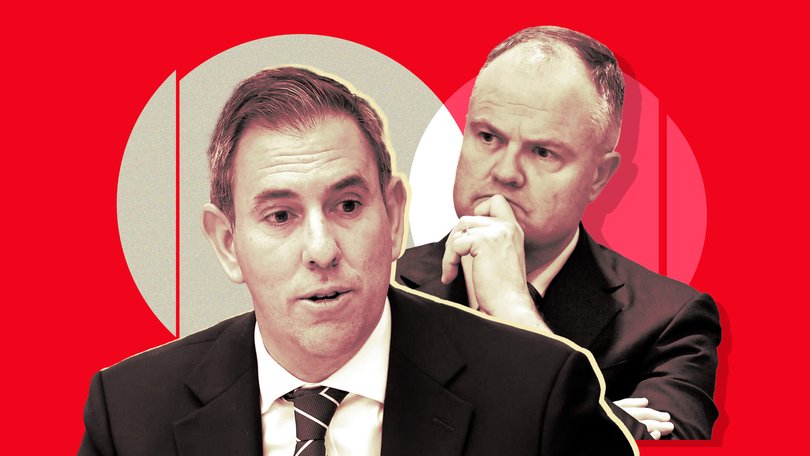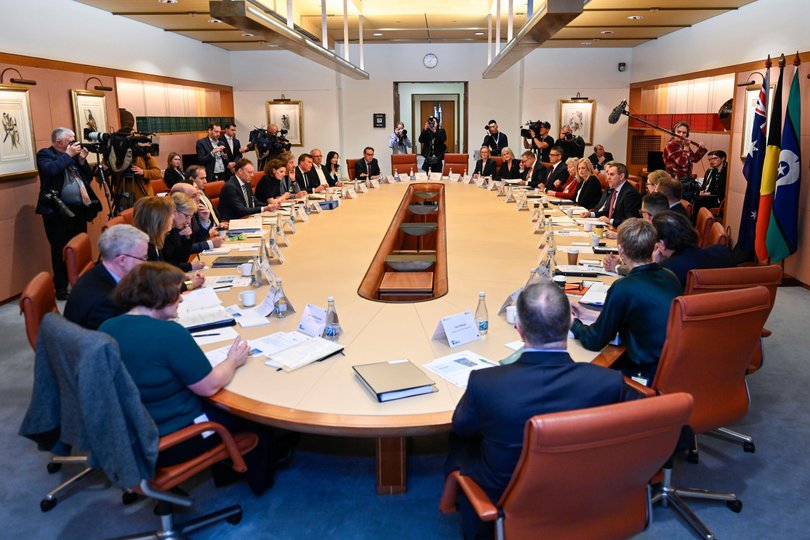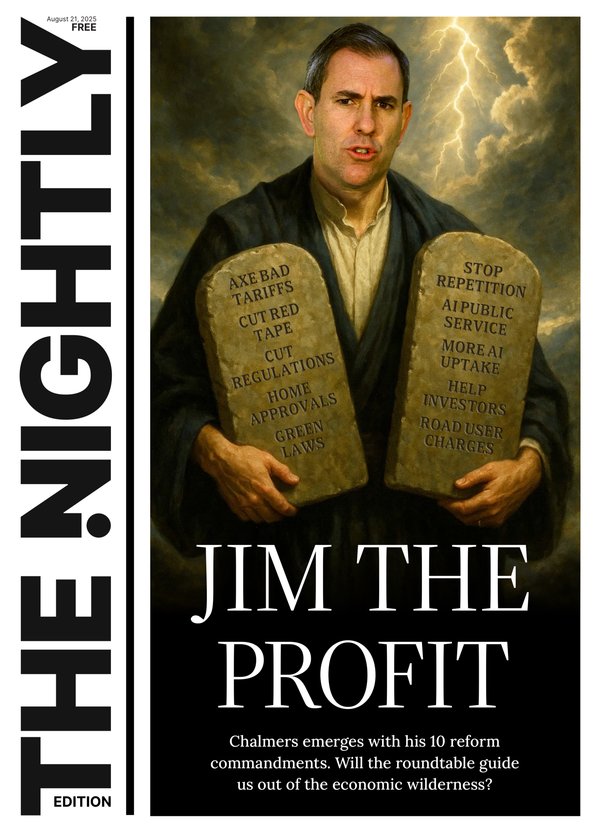AARON PATRICK: Some thought Ted O’Brien should quit the summit. Instead, he got Aussies thinking about tax

Within the shadow cabinet, some thought that Ted O’Brien’s decision to attend the Government’s lobbyists meetings this week was a miscalculation. The opposition Treasury spokesman’s presence could be seen as an endorsement of a public relations stunt, they reasoned, and Mr O’Brien should have staged a noisy resignation to distance himself and the Liberal Party from the three-day event.
Mr O’Brien had another idea, and it wasn’t to read from Jim Chalmers’ script.
On Thursday, the summit’s last day, he accused the Treasurer of locking in long-term budget deficits through over-spending. He argued for rules to ensure surpluses match deficits over time, and asserted the current deficit would be about $40 billion smaller and government debt $100 billion less if new spending had been matched by spending cuts, according to media reports based in interviews with participants.
Sign up to The Nightly's newsletters.
Get the first look at the digital newspaper, curated daily stories and breaking headlines delivered to your inbox.
By continuing you agree to our Terms and Privacy Policy.The intervention, which was met with a sharp retort from Dr Chalmers, was quickly leaked to the media, creating the most interesting clash of ideas in what has mostly sounded like, from the outside, a predictable recitation of well-known positions.
The dilemma
Sometimes seen as lacking the dynamism and intellectual grunt of previous shadow treasurers, Mr O’Brien drew attention to what some economists regard as the government’s great dilemma: to balance the budget, it will have to cut programs or tax more.
For an opposition that has struggled since May’s disastrous loss, Mr O’Brien’s success at shifting the focus of the meetings was a political achievement.
During a break, he gave an in interview in which he pointed out the Government has spent an extra $160 billion since elected, racking up debt forecast to hit $1 trillion this year on a gross basis. “It is not you and I who will have to pay for that,” he told 2GB. “It is our kids and grandkids.”
When he made a similar observation inside the cabinet room, Dr Chalmers responded, according to The Age: “Every number you just said is wrong.”

Mr O’Brien’s fiscal rule was not new, but was able to attract more attention thanks to willingness to challenge the well-choreographed event. The policy was proposed during the election campaign - and undercut by Peter Dutton’s plan to run larger deficits in the first two years of a Coalition government.
Behind doors
The previous day, the shadow treasurer’s contribution to a debate about regulation was more conciliatory. According to one person present, Mr O’Brien distinguished between his party’s position and personal views, suggesting a willingness to compromise for the benefit of the nation.
At the time, the room was talking about how to make it easier for get new factories, mines and other industrial projects approved. One of the culprits was seen as the Environment Protection and Biodiversity Conservation Act, which requires companies to apply for permits that can take years to approve.
There was also talk about streamlining the National Construction Code, which builders say has gone too far and makes buildings more expensive than they need to be.
Both are well known, the problems did not require a national summit to bring to the Government’s attention. One participant thought the discussion was designed to secure agreement from interest groups that the regulations needed to be loosened, and therefore avoid a politically harmful debate when they are.
While worthy changes, neither would revive an economy that has seen living standards growth trail 15 other rich countries over the past decade.
“Does any of this move the needle much?” the person said they thought. “We won’t know until we see what comes of it.”

